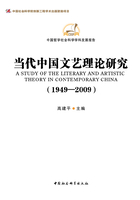LA GRANDE MADEMOISELLE
Her Character--Her Heroic Part in the Fronde--Her Exile--
Literary Diversions of her Salon--A Romantic Episode There are certain women preeminently distinguished by diversity of gifts, who fail to leave behind them a fame at all commensurate with their promise. It may be from a lack of unity, resulting from a series of fragmentary efforts, no one of which is of surpassing excellence; it may be that the impression of power they give is quite beyond any practical manifestation of it; or it may be that talents in themselves remarkable are cast into the shade by some exceptional brilliancy of position. The success of life is measured by the harmony between its ideals and its attainments. It is the symmetry of the temple that gives the final word, not the breadth of its foundations nor the wealth of its material.
It was this lack of harmony and fine proportion which marred the career of a woman who played a very conspicuous part in the social and political life of her time, and who belongs to my subject only through a single phase of a stormy and eventful history. No study of the salons would be complete without that of the Grande Mademoiselle, but it was not as the leader of a coterie that she held her special claim to recognition. By the accident of birth she stood apart, subject to many limitations that modified the character of her salon and narrowed its scope, though they emphasized its influence. It was only an incident of her life, but through the quality of its habitues and their unique diversions it became the source of an important literature.
Anne Marie Louise d'Orleans, Duchesse de Montpensier, has left a very distinct record of herself in letters, romances, memoirs and portraits, written out of an abounding fullness of nature, but with infinite detail and royal contempt for precision and orthography. She talks naively of her happy childhood, of her small caprices, of the love of her grandmother, Marie de Medicis, of her innocent impressions of the people about her. She dwells with special pleasure upon a grand fete at the Palais Royal, in which she posed as an incipient queen. She was then nineteen.
"They were three entire days in arranging my costume," she writes. "My robe was covered with diamonds, and trimmed with rose, black, and white tufts. I wore all the jewels of the crown and of the Queen of England, who still had some left. No one could be better or more magnificently attired than I was that day, and many people said that my beautiful figure, my imposing mien, my fair complexion, and the splendor of my blonde hair did not adorn me less than all the riches which were upon my person."
She sat resplendent upon a raised dais, with the proud consciousness of her right and power to grace a throne. Louis XIV, than a child, and the Prince of Wales, afterwards Charles II, were at her feet. The latter was a devoted suitor. "My heart as well as my eyes regarded the prince de haut en bas," she says. "I had the spirit to wed an emperor."
There were negotiations for her marriage with the Emperor of Austria, and she thought it wise to adapt herself in advance to his tastes. She had heard that he was religious, and immediately began to play the part of a devote so seriously, that she was seized with a violent desire to become a veritable religieuse and enter the convent of the Carmelites. She could neither eat nor sleep, and it was feared that she would fall dangerously ill. "I can only say that, during those eight days, the empire was nothing to me," she writes. But she confesses to a certain feeling of vanity at her own spirit of self-sacrifice, and the sensibility which made her weep at the thought of leaving those she loved. This access of piety was of short duration, however, as her father quickly put to flight all her exalted visions of a cloister. Her dreams of an emperor for whom she lost a prospective king were alike futile.
"She had beauty, talent, wealth, virtue, and a royal birth," says Mme. de Motteville. "Her face was not without defects, and her intellect was not one which always pleases. Her vivacity deprived all her actions of the gravity necessary to people of her rank, and her mind was too much carried away by her feelings.
As she was fair, had fine eyes, a pleasing mouth, was of good height, and blonde, she had quite the air of a great beauty."
But it was beauty of a commanding sort, without delicacy, and dependent largely upon the freshness of youth. The same veracious writer says that "she spoiled all she went about by the eagerness and impatience of her temper. She was always too hasty and pushed things too far." What she may have lacked in grace and charm, she made up by the splendors of rank and position.
A princess by birth, closely related to three kings, and glowing with all the fiery instincts of her race, the Grand Mademoiselle curiously blended the courage of an Amazon with the weakness of a passionate and capricious woman. As she was born in 1627, the most brilliant days of her youth were passed amid the excitements of the Fronde. She casts a romantic light upon these trivial wars, which were ended at last by her prompt decision and masculine force. We see her at twenty-five, riding victoriously into the city of Orleans at the head of her troops and, later, ordering the cannon at the Bastile turned against the royal forces, and opening the gates of Paris to the exhausted army of Conde. This adventure gives us the key-note to her haughty and imperious character. She would have posed well for the heroine of a great drama; indeed, she posed all her life in real dramas.
At this time she had hopes of marrying the Prince de Conde, whom she regarded as a hero worthy of her. His wife, an amiable woman who was sent to a convent after her marriage to learn to read and write, was dangerously ill, and her illustrious husband did not scruple to make tacit arrangements to supply her place.















